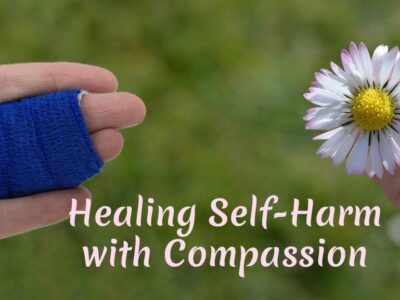Emotional Suppression Consequences: Have you ever felt like you’re going through life on autopilot – not happy, not sad, just disconnected? You complete tasks, go through your routine, interact with others – but a part of you remains distant, unreachable. This invisible wall is often a result of emotional suppression. And what may seem like a coping mechanism slowly turns into a prison.
In this article, we explore the deep-rooted effects of emotional suppression consequences, how they impact your body, relationships, and sense of identity – and how you can begin returning to your emotional truth.
What Is Emotional Suppression?
Emotional suppression is the act of pushing away, numbing, or denying feelings that feel overwhelming, shameful, painful, or socially unacceptable. This defense mechanism may occur consciously – when a person chooses to ignore or hide an emotion – or unconsciously, as an automatic response developed in early life. It often begins in childhood, and shaped by repeated experiences where emotional expression was dismissed, punished, or ignored. Over time, the child internalizes these patterns as truths, leads to deep emotional disconnection in adulthood.
For instance, hearing messages like:
- “Don’t cry.”
- “Be strong.”
- “Emotions make you weak.”
These messages do not disappear with age; they become internalized beliefs that guide behavior, identity, and relationships. Eventually, you may stop recognizing your true feelings at all – not because you’re heartless, but because it was never safe to feel them.
You’re not weak for suppressing. You were protecting yourself. But now, healing begins by learning how to feel again – safely, gently, and fully.
Emotional Suppression Consequences: How Body Carries the Pain
The body always keeps the score. What the mind tries to ignore, the body holds – often in the form of illness, pain, and exhaustion. Emotional energy that is not expressed or acknowledged must go somewhere, and when it cannot be released through words or healthy behaviors, it manifests somatically. In simple terms, your body speaks the feelings you’ve buried.
Modern research, including findings by the American Psychological Association (APA) and the NHS, shows that chronic emotional suppression can contribute to a wide range of physical health issues – not because the body is weak, but because it has become the only available voice for unspoken pain.
- Chronic fatigue
- Muscle tightness
- Migraines
- IBS and digestive disturbances
- Psychosomatic pain without medical explanation
These aren’t imagined. Somatic symptoms are your body’s language when words and emotions have been silenced. ➡️ APA Reference: Suppressed Emotions and Somatic Health
Functional Neurological Symptom Disorder (FND): A Hidden Expression of Emotional Suppression
Functional Neurological Symptom Disorder; is a compelling and complex illustration of how deeply emotional suppression consequences can penetrate the mind-body connection. In individuals with FND, psychological distress does not merely cause tension or mild discomfort; it transforms into full-blown neurological symptoms that resemble those of serious neurological diseases. Yet, when doctors investigate using standard tests, they find no structural damage in the brain – no tumors, no lesions, no nerve injuries.
This can be incredibly frustrating for those affected, as their symptoms are real, distressing, and disabling, yet often misunderstood. The nervous system becomes overwhelmed by unprocessed emotional or traumatic content and, having no healthy outlet, expresses this overload through the body. FND is not “pretending.” It is the nervous system short-circuiting from years – sometimes decades – of suppressed emotions. Common symptoms such as:
- Temporary paralysis
- Non-epileptic seizures
- Loss of speech
- Vision disturbances
The NHS and RCI recognize that in many FND cases, unresolved emotional trauma and suppression lie at the root. ➡️ NHS: Functional Neurological Disorder Overview
Suppression Destroys Emotional Intimacy
When emotions are shut down, relationships suffer in subtle yet profound ways. Emotional suppression does not create peace – it builds walls. Over time, the inability to express or even recognize your inner emotional world creates distance between you and those closest to you. Partners may feel ignored, unheard, or rejected. Children may grow up confused by the emotional silence and internalize that feelings are unsafe or unwanted. Friends may sense something is ‘off’ but not understand why. Emotional suppression creates an emotional vacuum – and that vacuum is filled with confusion, miscommunication, and relational pain.
Here’s how that might manifest:
- You may seem distant or unavailable
- You may struggle to express needs
- Others feel pushed away or confused
- Conflicts remain unresolved
When suppressed emotions are finally expressed, they often come out as irritation, passive-aggression, or explosive outbursts. ➡️ American Academy of Pediatrics – Emotional Health & Family Dynamics
Psychological Roots of Suppression
Why do we suppress emotions? Most often, it’s not truly a choice – it’s survival rooted in our earliest environments. Emotional suppression is usually born out of necessity, not negligence. From childhood, many people receive the message that certain emotions are dangerous, shameful, or unwanted. For some, tears were met with punishment. For others, expressing anger led to rejection, or vulnerability was simply ignored. In families, schools, and cultural environments where emotional expression is unsafe, the mind adapts – by shutting down.
This learned survival strategy allows the child to stay connected to caregivers, avoid conflict, or maintain an illusion of control. But what helps you survive back then, can quietly harm you now. As adults, these protective patterns go underground and become automatic – so much so that people no longer realize they’re suppressing anything at all. It just feels like who they are. Therapy helps uncover, untangle, and ultimately soften these old survival codes into conscious emotional freedom.
- Childhood neglect or emotional invalidation
- Over-responsibility in families (“I had to stay strong for everyone”)
- Cultural stigmas around emotions (“Real men don’t cry”)
- Fear of rejection or abandonment
These patterns become unconscious rules. Therapy helps bring them into awareness – so they can be rewritten.
From Suppression to Self-Connection
You don’t need to force yourself to feel everything at once. Healing doesn’t require emotional intensity – it begins with something far more gentle: acknowledgment and permission. Permission to feel what is there, even if it is quiet, incomplete, or unclear. Permission to be confused, numb, afraid, or unsure. Permission to not know what you’re feeling yet – and still remain worthy of care. Your emotions may return not in a flood, but in gentle ripples. You may first notice a lump in the throat before tears, a tight chest before anger, or a lingering sense of unease before discovering grief. This is normal. This the nervous system learning to trust again – slowly, tenderly.
Healing starts by softening the harsh self-demands to ‘figure it all out’ and instead creating space for whatever arises. The emotional world is like a long-lost friend — it needs patience, curiosity, and trust to come back into your life again.
Feeling Emotions is not a weakness. It is how we return home.
How Therapist Can Help You
A therapist gently guides you back to your inner world. They offer a safe, structured space where emotions can be felt without judgment. Therapy helps you regulate instead of suppressing, express without fear, and heal in your own time. This emotional safety rebuilds your connection with your own body, mind, and truth.
Welcome to Live Again
At Live Again India Mental Wellness, we walk beside you. Whether you’re just realizing the cost of not feeling or are ready to reclaim your emotional truth, you are not alone. Our therapists create safe, personalized healing paths – so you can come back to your own heart, one step at a time.


